Food Recovery
Zero Waste. Zero Hunger.
That’s our vision for our city, and we’re working to make it a reality through a comprehensive system of food recovery.
Food Recovery involves the picking up, processing, storing, and redistributing of already-prepared foods that would have otherwise been thrown out. Our goal is a partnership with every hotel, restaurant, banquet center, convention center, and long-term care home in Niagara Falls, as well as every mission, non-profit, faith community, and organization serving the people of our city facing food insecurity.
Everyone deserves access to safe, healthy, affordable food, and it’s possible!
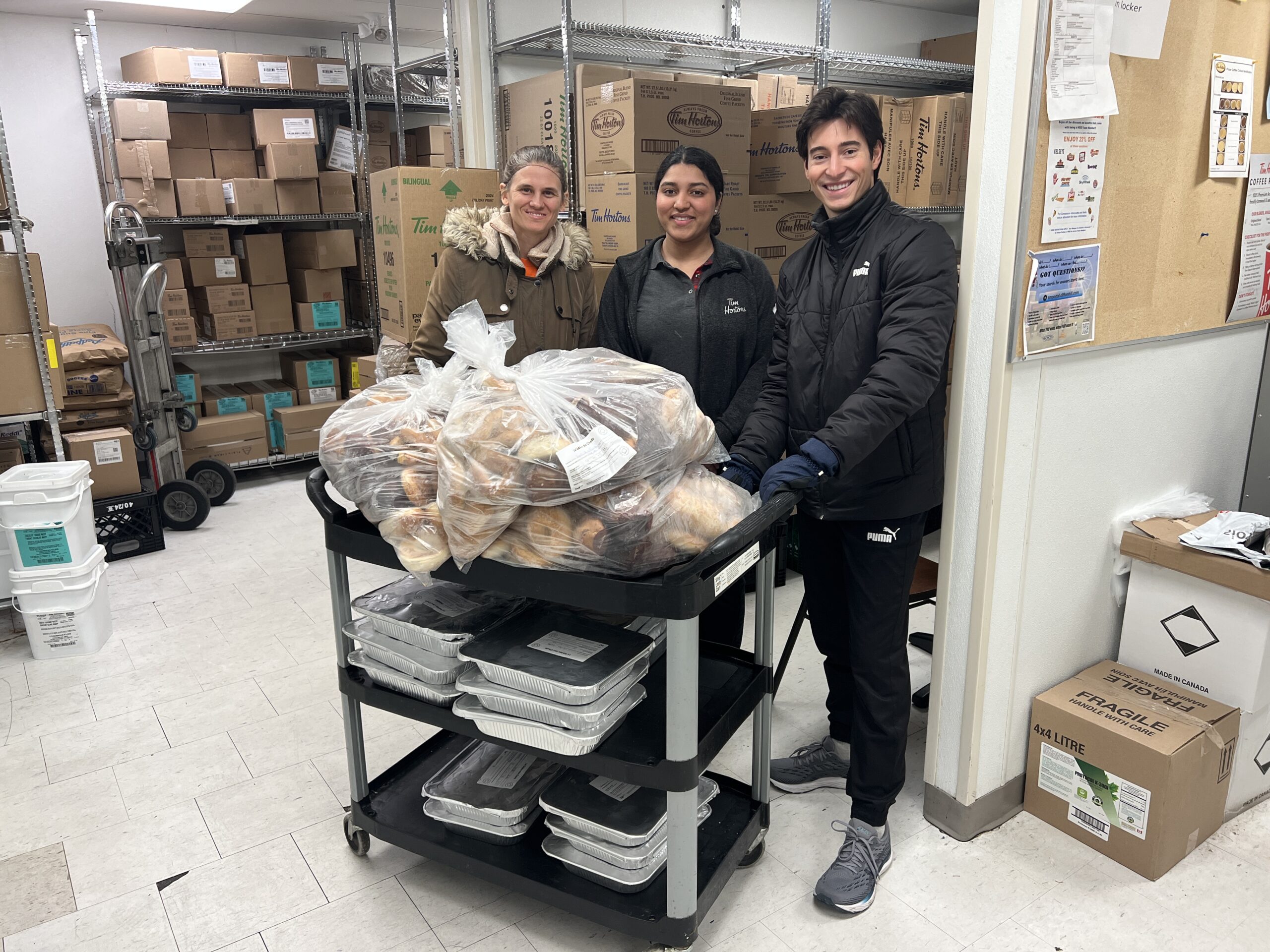

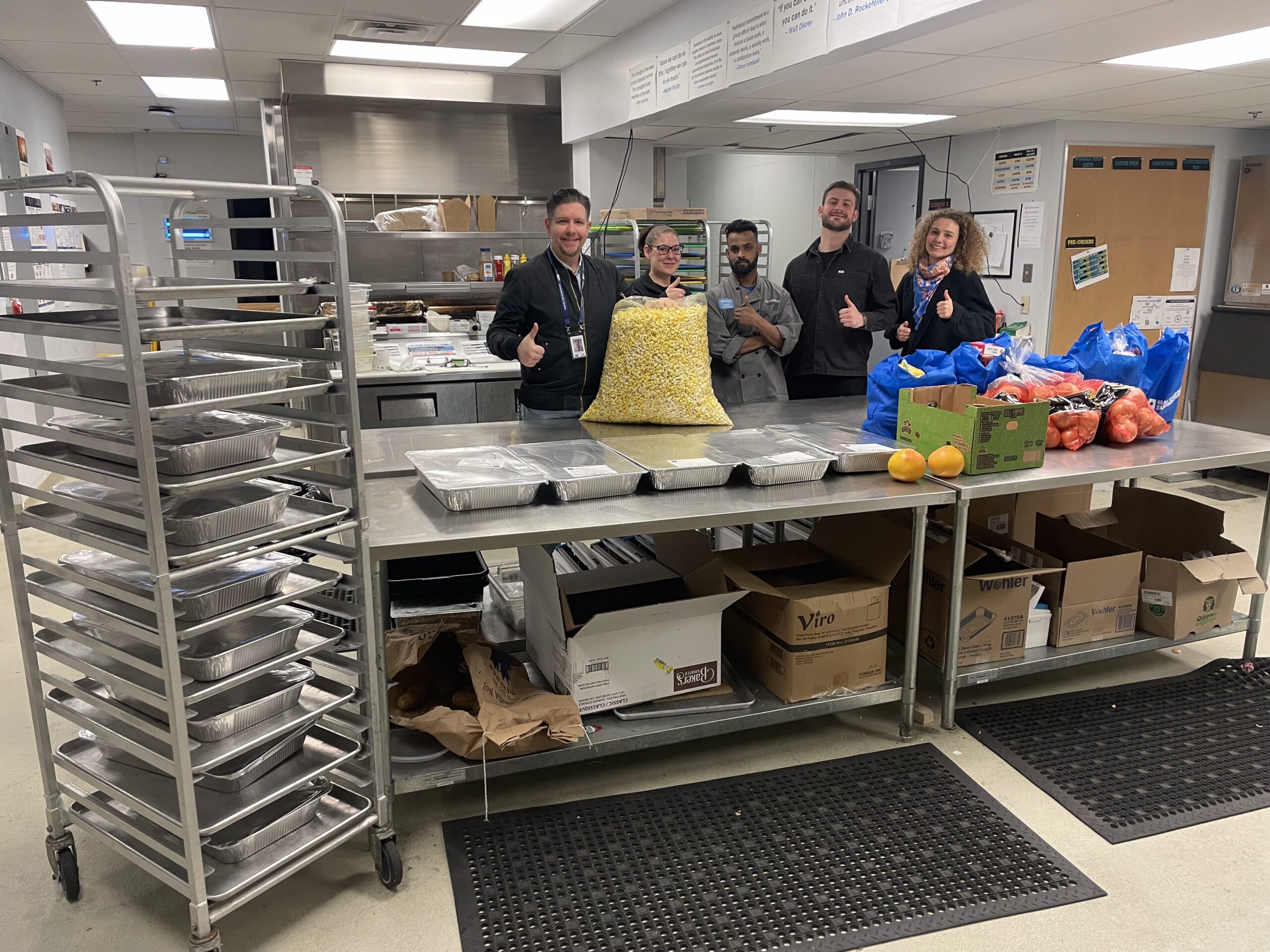
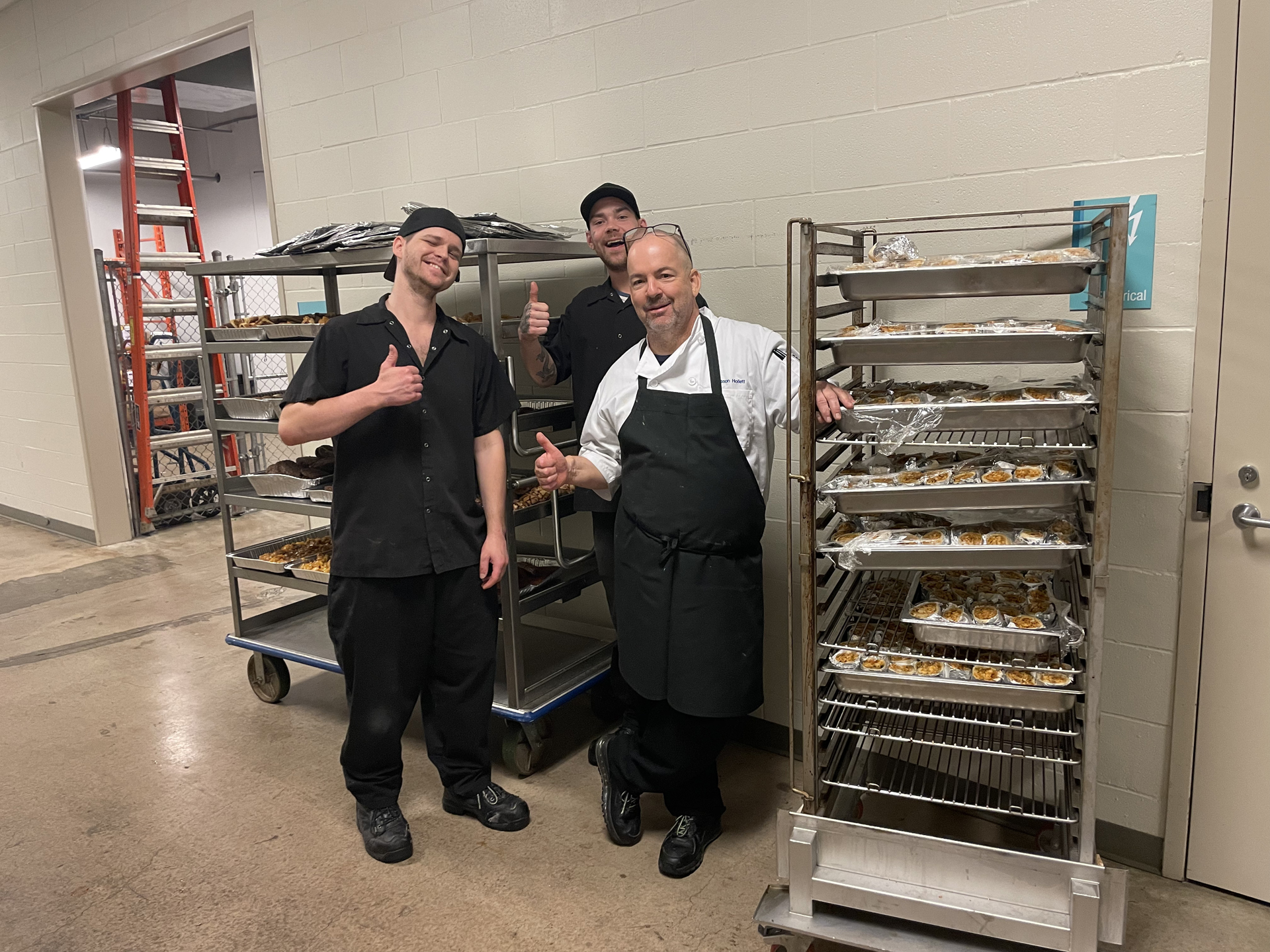
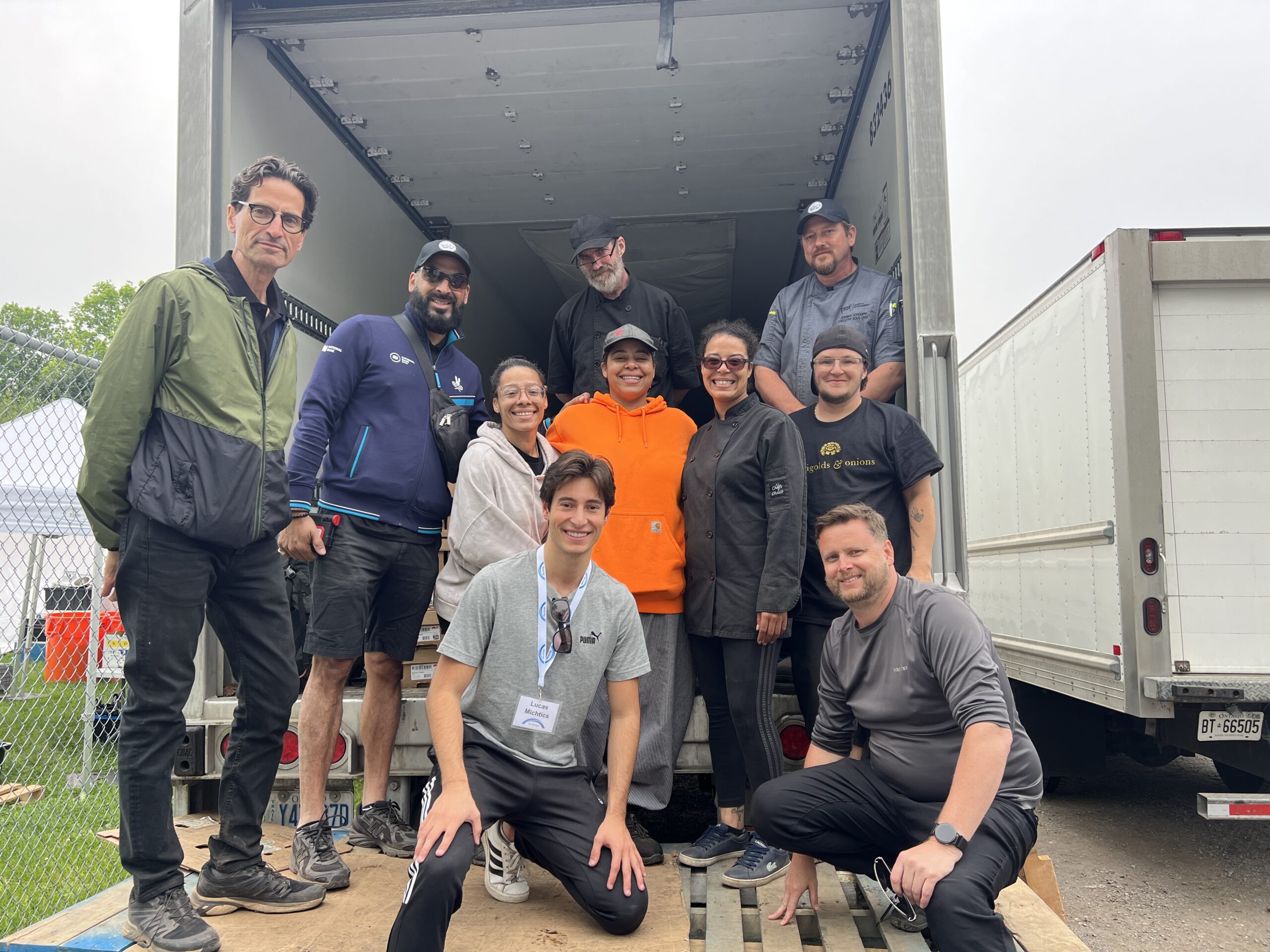
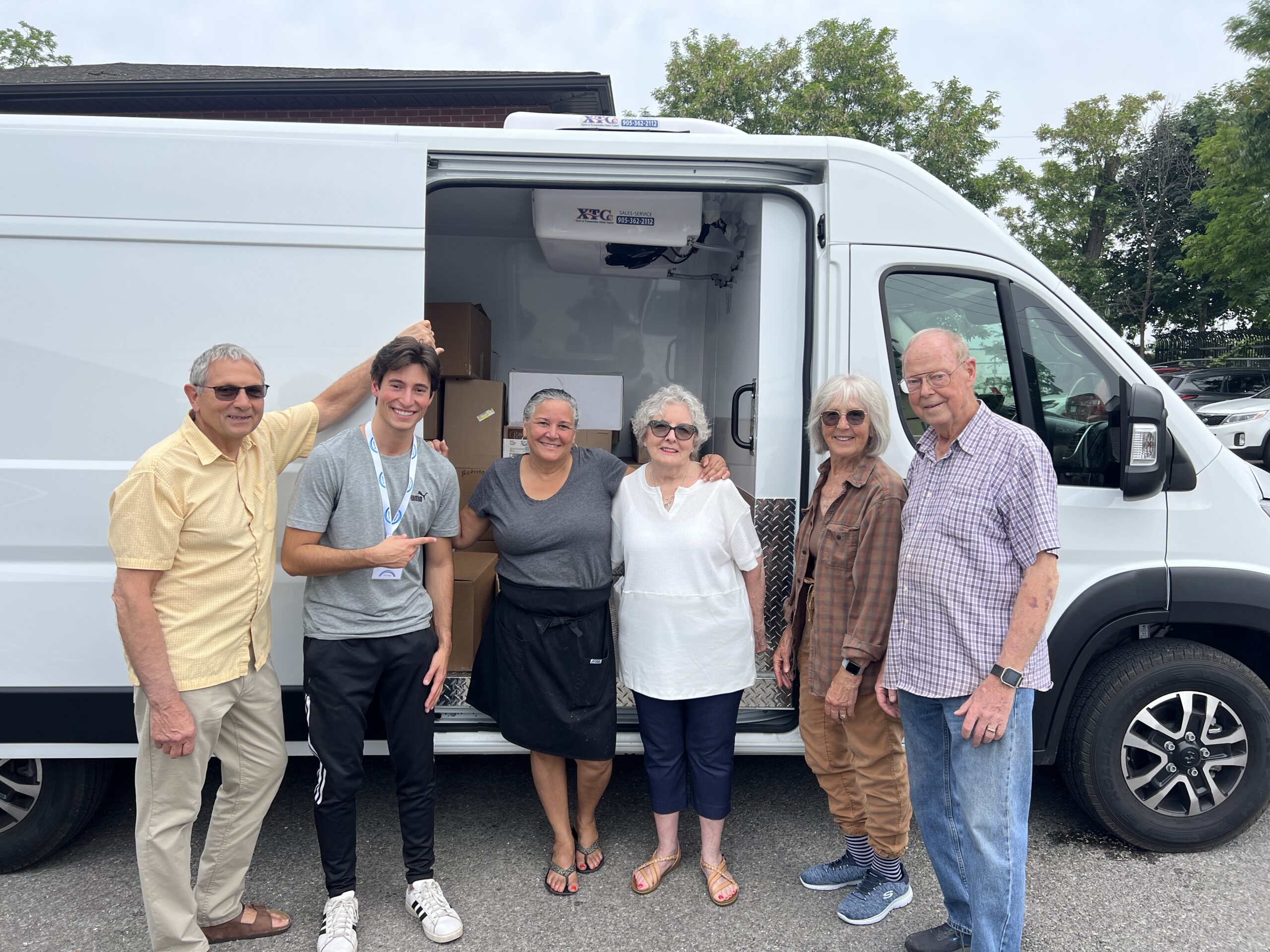
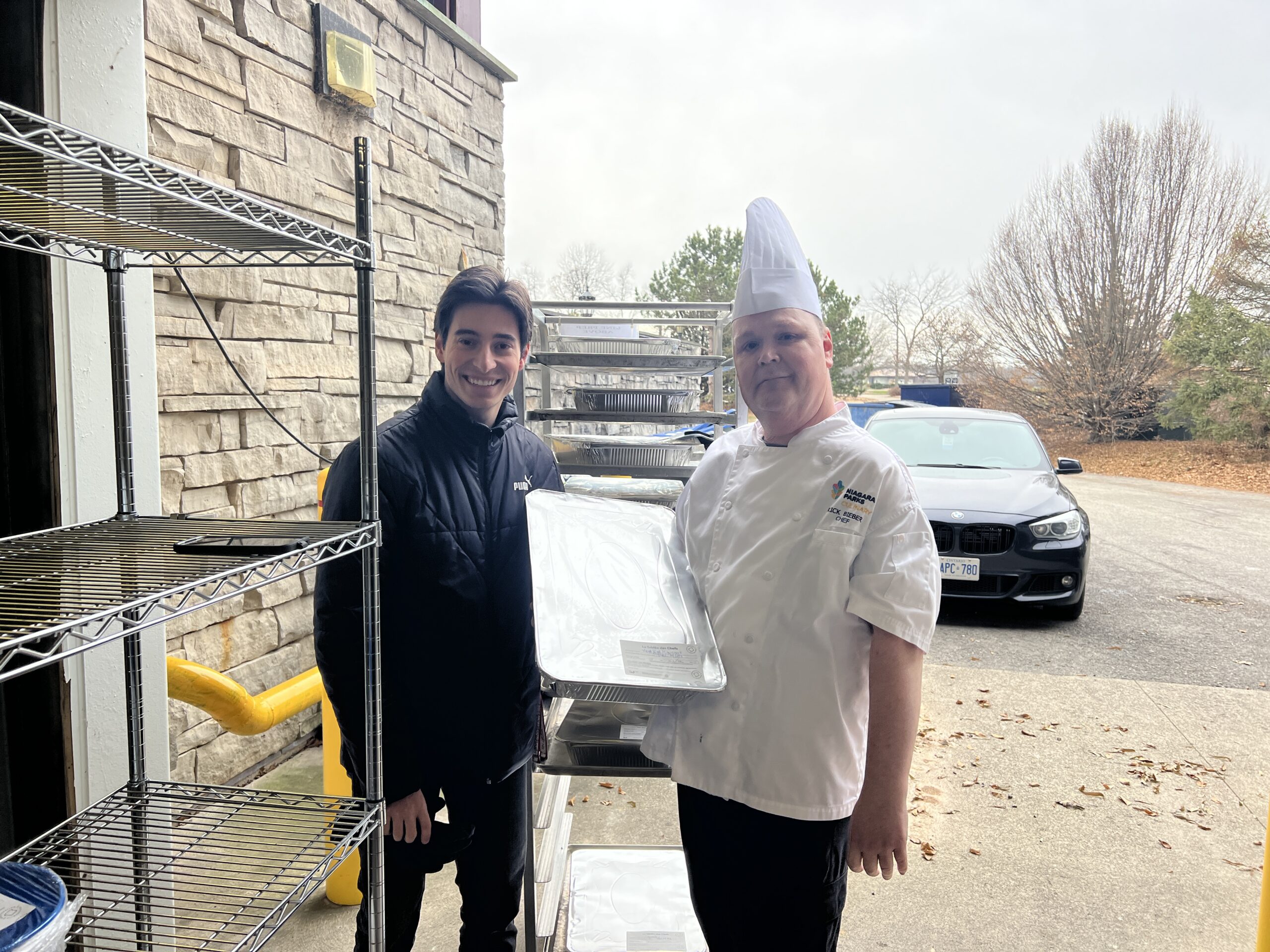
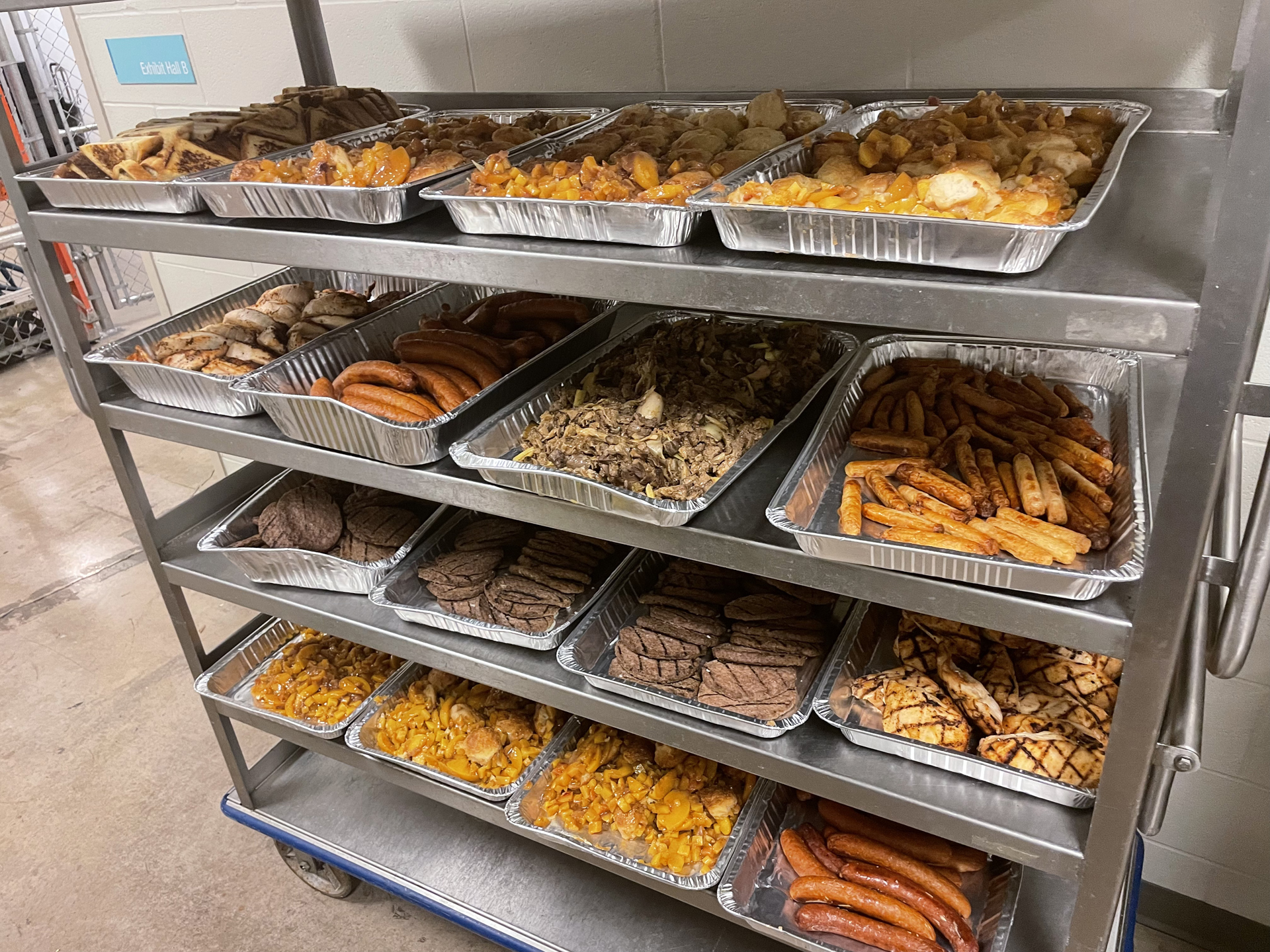
![]()
We are pleased to partner with La Tablee des Chefs, a non-profit out of Montreal, Quebec, who has successfully done this in their city for over 25 years! La Tablee acts as liaison between surplus food donors and local community organizations, who are responsible for collecting the food donations and redistributing them to people in situations of food insecurity. Today, they have over 200 donor establishments across Canada.
The goal is huge, but working together with partners across our city, we CAN do it!

Our Food Recovery Donors
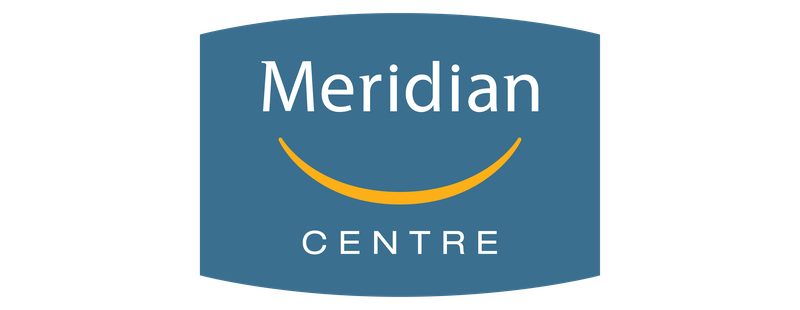
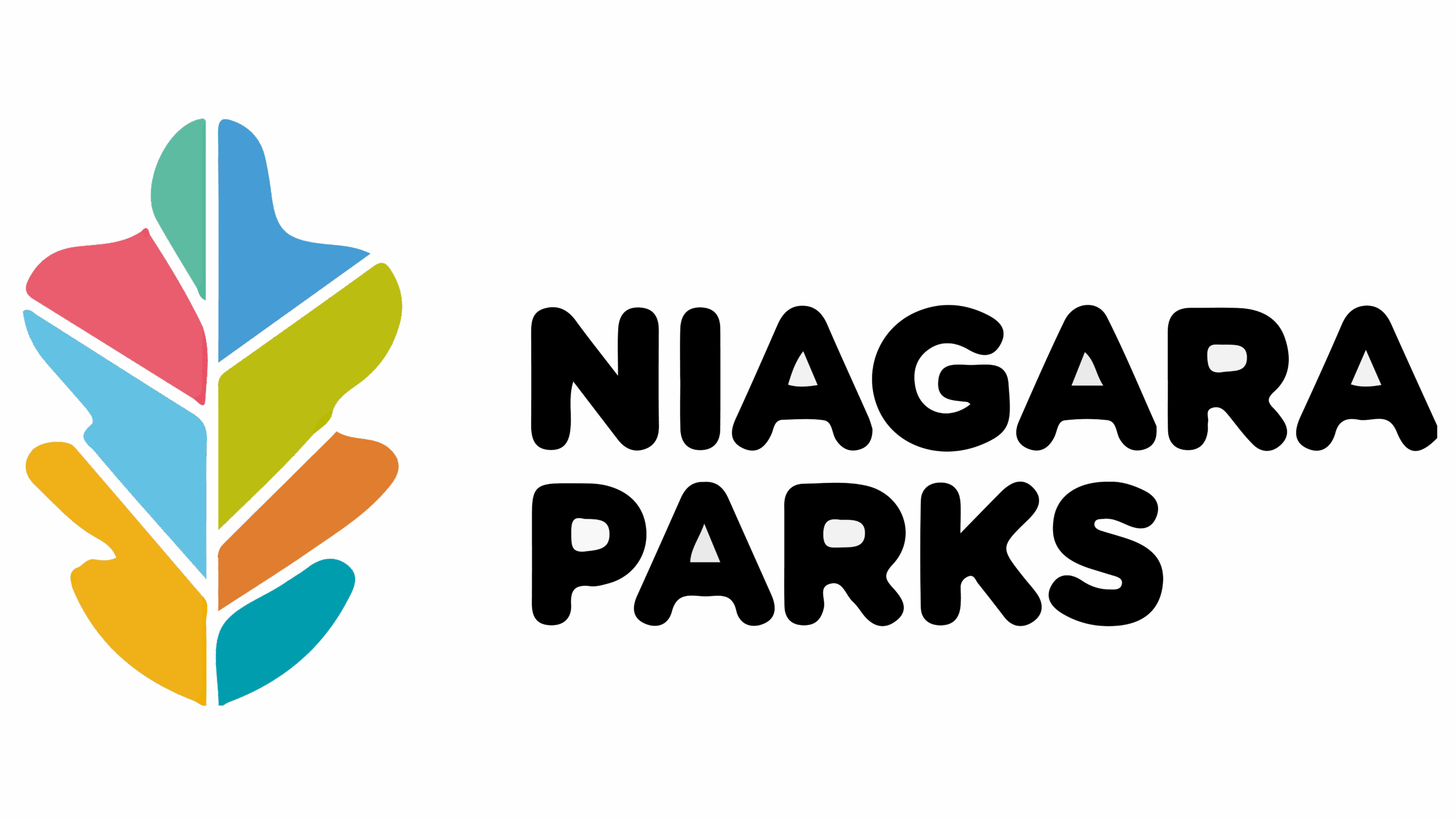


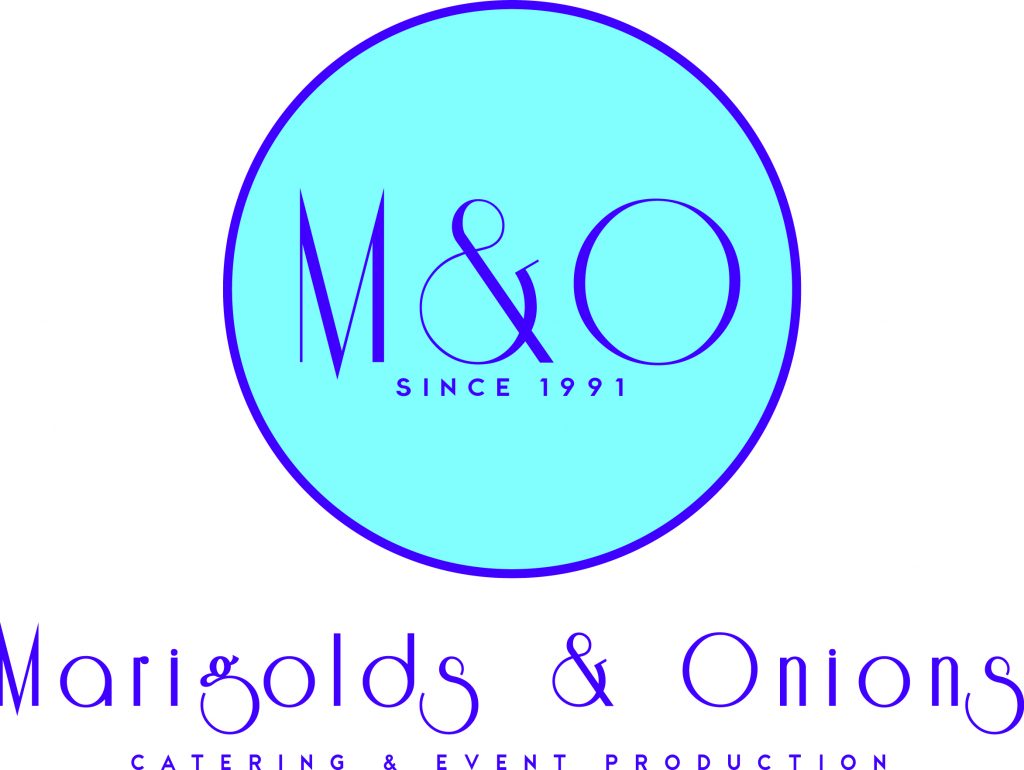
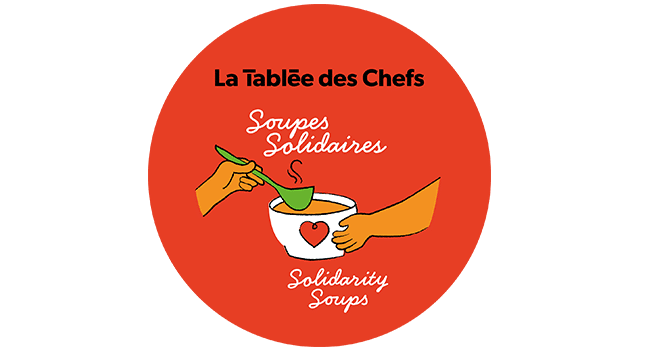
How does the food recovery process work?
In a typical pickup day, volunteers from The Bridge will use our refrigerated van to pick up food. Food temperature is crucial in this entire process. Once at the desired location, our team will collect food that was already prepared and placed into aluminum trays.
Additionally we collect leftover buns, muffins, salads etc. Once loaded, the food is temperature controlled and returned to our food recovery location, currently on Queen Street. The food always remains cold and we are very diligent in following food safety requirements.
I would like to sign my organization up to receive food
If you would like to sign your organization up to begin receiving food, please fill out the form below by clicking the link. We will reach out to you shortly.
The Bridge Food Recovery Recipient Onboarding
https://forms.gle/F6yDmCiXfUiFXds86
Is this safe and legal? If my organization donates food will we be responsible if someone is food poisoned?
The law allows you to donate. Please refer to the legislation in effect regarding your establishment’s liability.
Liability of Donor
- (1) A person who donates food or who distributes donated food to another person is not liable for damages resulting from injuries or death caused by the consumption of the food unless,
(a) the food was adulterated, rotten or otherwise unfit for human consumption; and
(b) in donating or distributing the food, the person intended to injure or to cause the death of the recipient of the food or acted with reckless disregard for the safety of others. 1994, c. 19, s. 1 (1).
We ensure the quality and safety of food:
- Food must be identified with labels provided;
- The cold chain must be maintained during transport: refrigerated products must remain refrigerated, and frozen products must remain frozen.
- Items that cannot be recovered include:
- Food from containers that were opened or damaged during transport or during disasters;
- Food left at room temperature for over 2 hours;
- Food that has been recalled;
- Any altered food
Where does the food go?
Often, we deliver our pickups to community partners in Niagara Falls, such as the YWCA Women’s Shelter, Project Share, The Soup Kitchen, and additional partners across Niagara Region.
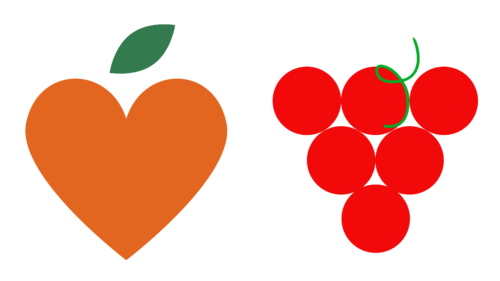
![]()
Who are the key players?
The Donor : GIVES the surplus food, on an impromptu or recurrent basis.
![]() : CONNECTS the donor and the organization. Moreover, we oversee and coordinate the process and offer an after-donation service.
: CONNECTS the donor and the organization. Moreover, we oversee and coordinate the process and offer an after-donation service.
The Organization: FEEDS their beneficiaries after the pick up.
